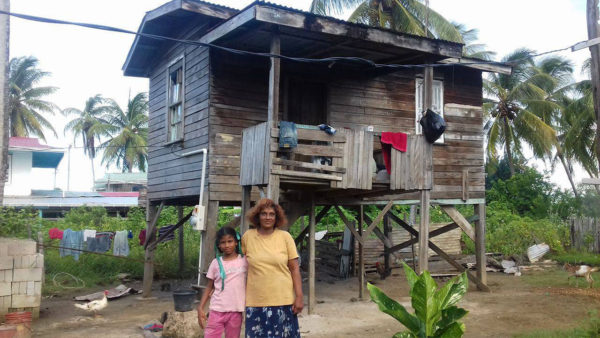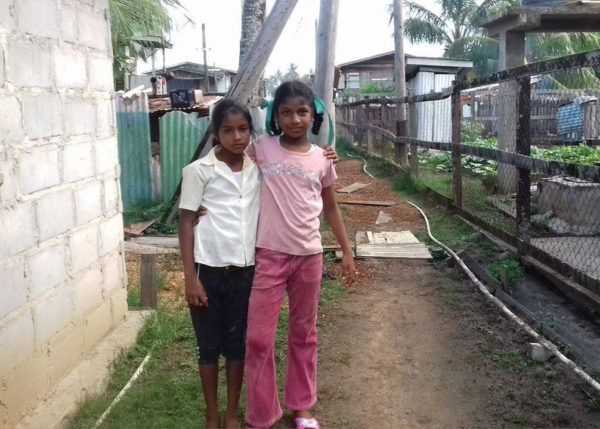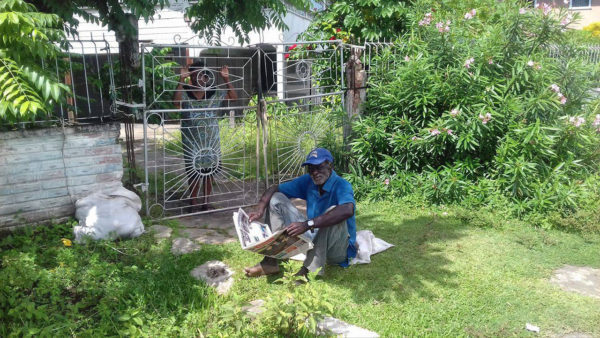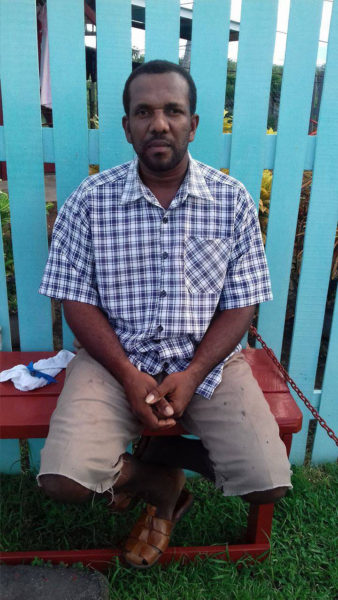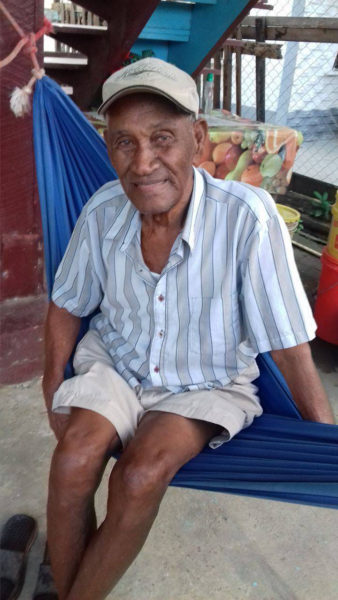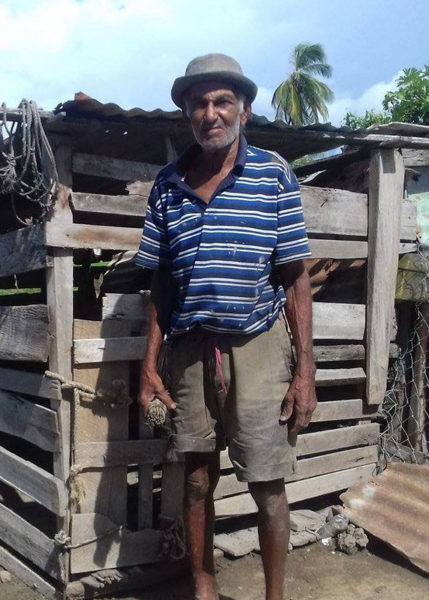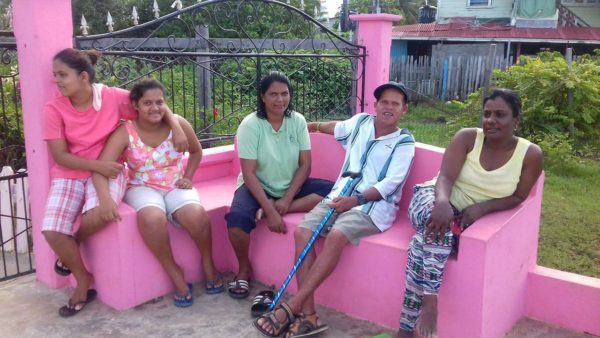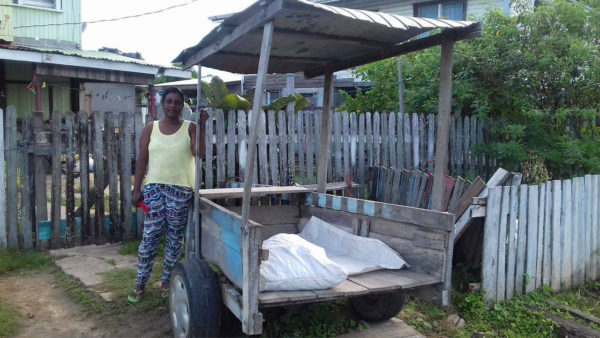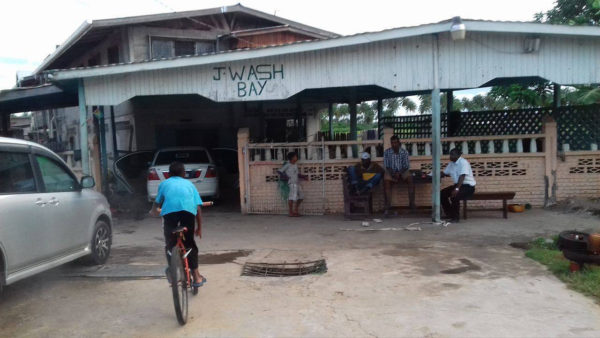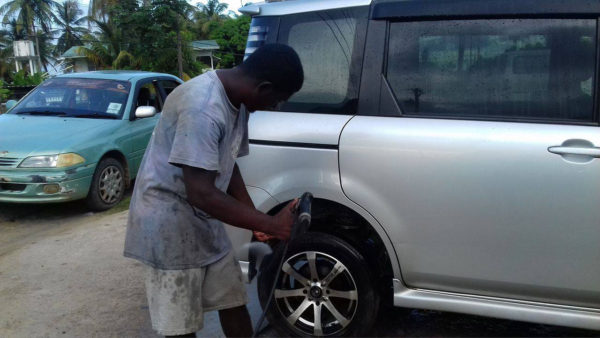Story and photos by Bebi Oosman
Number 35/Macedonia is located on the Corentyne in the ancient county of Berbice. It is the Village next to Wellington Park. Macedonia has a population of less than 200 persons, but according to villagers, it is one of the most developed villages on the Corentyne.
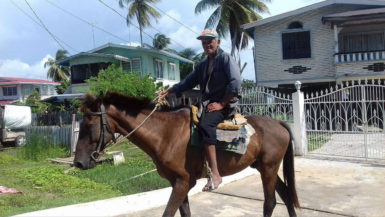
It is also well known for a Koa tree which is located on the main road. Villagers related that often when their relatives are going to visit them, they would say, “I’m going by the village with the big Koa tree.”
As the World Beyond Georgetown, traversed the streets of Macedonia around 3.20 pm one afternoon, persons sat relaxing on their bridges. It was evident that this was a norm for villagers, as almost every house has a bench on the bridge.
According to the friendly residents, the majority of the population is employed at Nand Persaud Company, while others are fishermen, farmers, cattle farmers and teachers. There is no school in the village, though in the very next village, there is a primary school.
Residents described Macedonia, as always being “quiet”. They stated that most persons living there are natives of the village.
Ramdhani Lomash, who was sitting on his bridge with his family and a neighbour, said that the only complaint he has is with the drainage situation. He said that the drains should be cleared on a more regular basis.
Ninety-five-year-old Robert Khedaroo was sitting in his hammock. He was born in the village, but had migrated some 14 years ago to the United States. He recently returned to Guyana to live with his eldest daughter, who now takes care of him. Khedaroo, who is without a doubt one of the most joyful persons in the village, said that years ago, Macedonia was not as populated as it is now. He said, “It na had so much houses before, but me like it how it deh now.”
Khedaroo’s daughter, Normaline, 63, who was also born and raised in Macedonia, agreed. “Over the years it develop more,” she said. “When me been small it na had currant and suh, now we get everything, up to date.”
Normaline also voiced complaints about the drainage system. “Sometimes the water a lodge in front me, it want dig out good,” she said.
She then added, “Everybody in this village always unite. This whole village a live like a family. When asked if she found it difficult to have to travel villages away to take her father to his doctor’s appointments, the woman, who is filled with positivity, replied, “Me na mind man, sometimes you a want come out and go somewhere.”
Renowned primary school teacher in the Corentyne district, Vaughn Dean, said he finds the village safe, since there has not been a major crime committed there in years. He even went, as far as to say, “You can even sleep with your doors open.”
He recalled that some ten years ago, he was the owner of a car and he would leave the vehcle unlocked on a regular basis outside and never lost anything.
Dean, 48, a teacher at the Kildonan Primary School, who teaches grades 4 to 6, also highlighted, that the village has developed tremendously over the years. “There are many changes, a few of them; the electricity, water supply and telephone,” he said.
When asked how he felt about the drainage situation in the village, Dean said that if everyone took care of their respective drains, the village would not have a negative situation as regards drainage. He said, “You are responsible for cleaning your surroundings.” However, he blamed passersby, in part, for littering the area. According to Dean, sometimes persons travelling in vehicles would throw their garbage out of the window.
Dean was sitting on a bench on his bridge as his three children played in the front yard, while his wife stood on their veranda overlooking the children. Dean’s eldest child, his daughter Aaleaya, said she likes living in the village because of its beauty.
The village is adorned with flower plants and fruit trees and it is clear that villagers pay a lot of attention to their gardens.
Although the task of being a stay-at-home mom is not an easy one, some mothers in the village also rear ducks, goats, chickens and sheep.
Gaitri Desa, 30, whose husband is a fisherman said, “I spend all day at home, so I decide to mind lil fowl and so na.” She described the village as peaceful. “You see this crack me a live in, nothing never happen, sometimes me na close me door and so.”
Richard Khedaroo, 78, has been living in Macedonia, for over 22 years. The man who lives alone, said his wife passed away some time ago and his children got married and moved to different villages where their spouses resided. Khedaroo makes his living by rearing pigs, goats, sheep, fowls and ducks. He said he recently sold a portion of his land to Nand Persaud Company.
Deodat Etwaroo called ‘Boyo’ was hopping on his horse to go and round up his cows. The 78-year-old Etwaroo said he likes to work as it keeps him active.
Kenrick Sampson, 65, a labourer, was seen sitting on his neighbor’s bridge reading a newspaper.
One man who operates a mechanic shop and a wash bay said he started small by fixing cars at his house until gradually, he expanded his business. Moses, 38, was washing a customer’s car as he spoke to the World Beyond Georgetown. “I try my best to take care of my wife and kids. I’m happy doing this job. I like it a lot and I get good business in this village,” he said.
Villagers also hang out in the afternoons at the wash bay, keeping Moses’s company. One man said, “Every afternoon me a come here. This boy [referring to Moses] is a good boy.”
Macedonia also has a beach, but the only road leading to the it is isolated and filled with potholes, making it next to impossible to access the beach. Most persons prefer to head to the very popular Number 63 beach.
